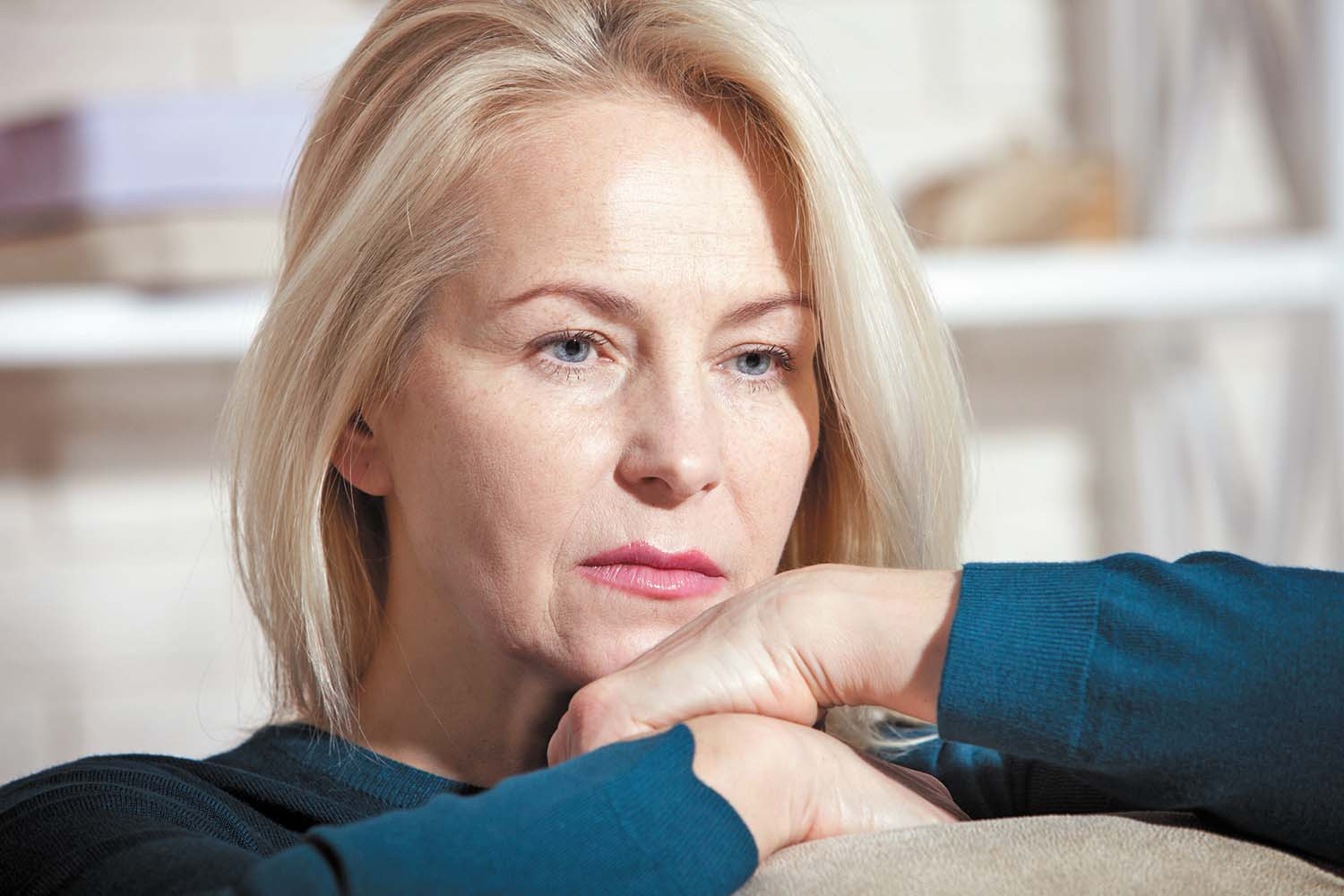Harvard Women's Health Watch

Image: Victor_69/Getty Images
The years leading up to menopause and the transition itself can bring changes to your body. But they can also have an effect on your mind, specifically your mental health.
The incidence of depression doubles during this time. Women who have struggled in the past with depression or anxiety might also see a resurgence in symptoms.
Shifts in the levels of female hormones can cause mood changes at other stages of life, so it's not necessarily surprising that they can have some effect on mood during the menopausal transition as well, says Dr. Hadine Joffe, the Paula A. Johnson Associate Professor of Psychiatry in Women's Health at Harvard Medical School and executive director of the Connors Center for Women's Health and Gender Biology at Brigham and Women's Hospital. Premenstrual dysphoric disorder (which is a more severe form of premenstrual syndrome, affecting mood) and postpartum depression are other examples of conditions that are driven by hormonal changes inside the body – in these cases, before menstruation or after childbirth.
"These disorders aren't 100% hormone-based," says Dr. Joffe, but female hormones play a major role.
Mood shifts during perimenopause and at menopause are most often mild. "Milder depressive symptoms have clearly been linked with hormone changes," says Dr. Joffe. For example, Joffe was the lead author of a 2019 study in The Journal of Clinical Endocrinology & Metabolism that linked an increase in depression symptoms at perimenopause with fluctuations of two hormones, progesterone and estradiol (the most potent form of estrogen). But when it comes to major depression (the more severe form of clinical depression), the link to female hormone changes is not clear.
The vast majority of women who develop significant mood issues during perimenopause have had them in the past. It's relatively rare for someone with no history of depression or anxiety to suddenly develop a severe case of it at menopause, says Dr. Joffe. In addition, midlife – when menopause occurs – is a time when women sometimes face multiple sources of stress, including caring for children, dealing with ageing parents, and navigating life changes, all of which may contribute to the incidence of depression and anxiety at this age.
Continue reading
Labels:
menopause, depression, anxiety, female_hormones,
No comments:
Post a Comment